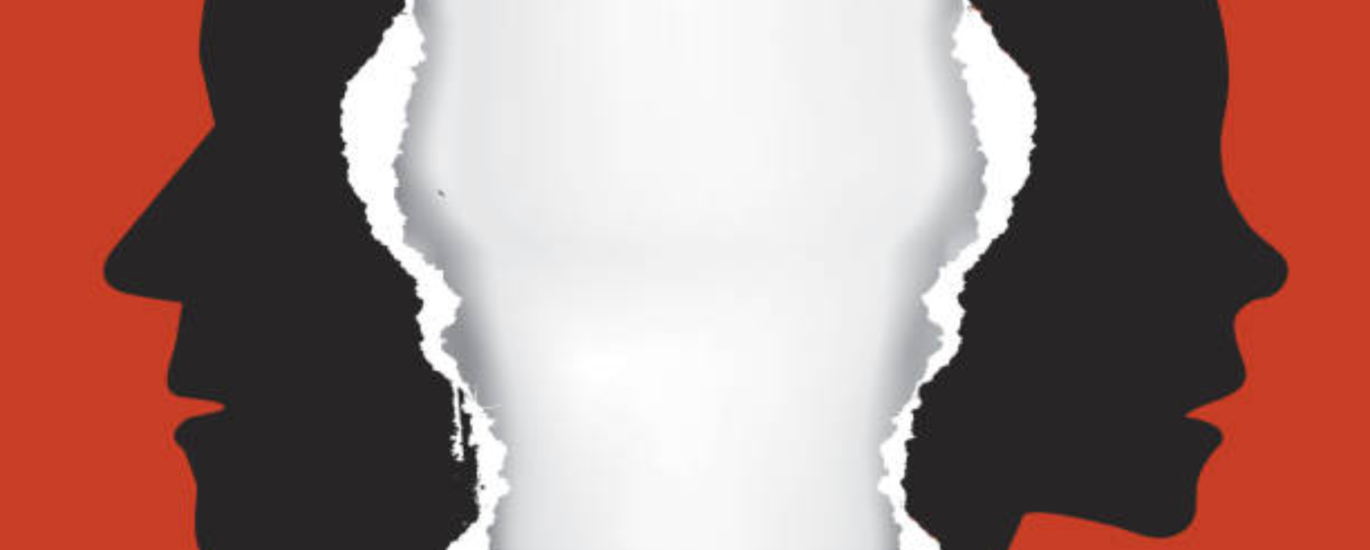“my future and the future of my family was completely out of my control”
Amy is joined by friend Kristy Carter to discuss how the institution of divorce always has and continues to fail women, placing divorcees and their children at risk. Kristy bravely shares her personal story of re-starting life in a society which continues to treat women like children.
Our Guest
Kristy Carter
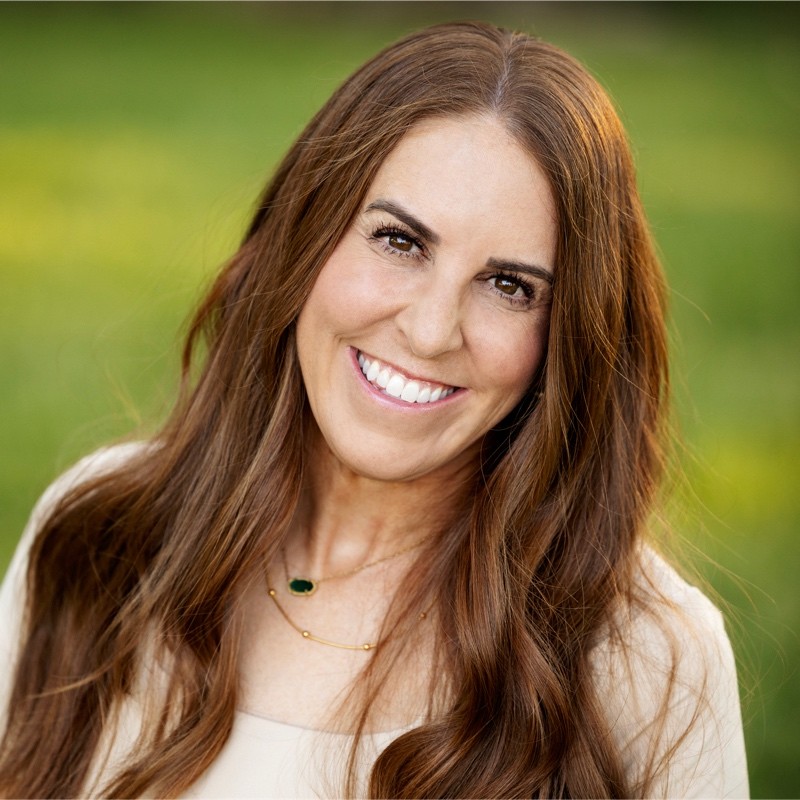
The Discussion
Amy Allebest: On our very first season of the podcast, we covered an essential text in women’s literature called A Declaration of the Rights of Woman and the Female Citizen by Olympe de Gouges. It was written in 1791. I’m going to read a quote from that. It’s a 230-year-old document and I want you to think about whether this situation is still relevant today. This passage is about a woman who gets married and then at some point her husband leaves her. It says, quote, “The older she has grown with him, the more inhuman his infidelity. If she has children, he will abandon her just the same. If he is rich, he will consider himself excused from sharing his fortune with his noble victims. If he is obliged to do his duty, he will disregard this obligation, counting on every support from the law.”
My guess is that every single person listening or watching this today can relate to this quote, either as a person who this has happened to or you know someone who this has happened to. And so the subject of today’s podcast is to identify the patriarchal structures that make it so that when a heterosexual couple divorces the experience is very different for the man than it is for the woman. And to talk about that topic today, I have here my dear friend, Kristy Carter. Welcome to the podcast, Kristy.
Kristy Carter: Thank you. I feel like this has been a long time coming. I’m so excited that our schedules finally aligned.
AA: I’m so excited to have you here. Kristy and I have been friends since 2002 and I was just remembering the very first time I saw you, actually. I don’t know if you remember, but I think you were sitting in the foyer of the Church and my husband and I walked in and you were sitting in a chair and I just have a very clear snapshot of just seeing you. And I think it’s because I knew we were going to be friends. Like I just saw you like, oh yeah, hi, I’m your new friend.
KC: Totally true. I just knew we were meant to be friends the second we saw each other.
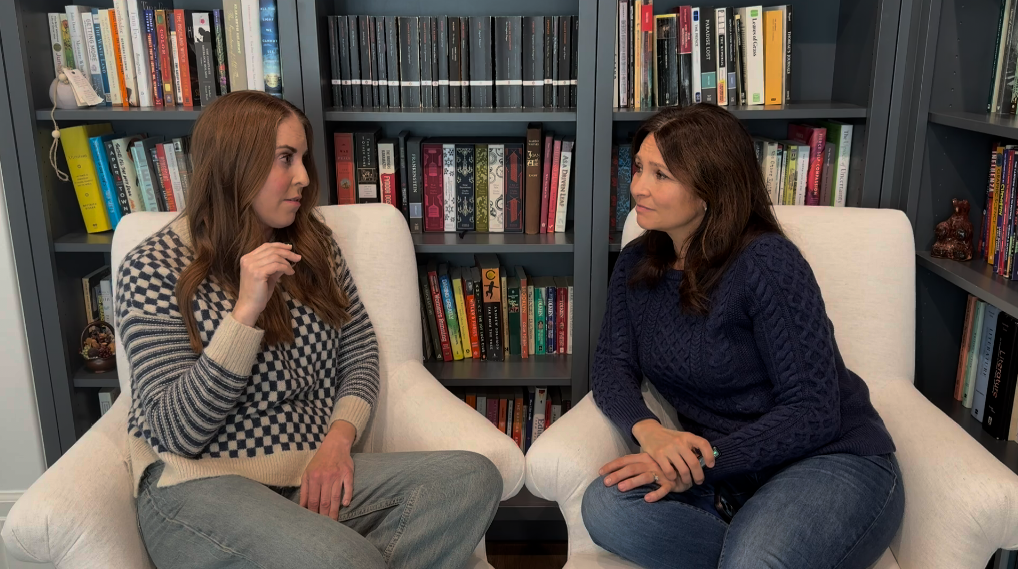
AA: Well, that’s a human that’s like me.
KC: Yeah, exactly.
AA: We knew. And we’ve stayed friends through all these years, through ups and downs and all kinds of things in life. And I’ll just say for listeners that the reason I invited you onto the podcast is because you have experience, personal experience, and a lot of wisdom having to do with this topic. And so I would love it if you’d be willing to talk about your own experience personally, but then I’m also going to read some emails that people have sent to me about this topic, and maybe you can weigh in on like maybe giving some advice or some validation and encouragement.
KC: Yeah. I feel like one disclaimer is definitely that I’m not a professional podcaster; this is my first time. So anything that I say is definitely just my opinion and just speaking from my experience, not as a universal group with universal opinions that are applicable to everyone. So that’s my disclaimer.
AA: Perfect. That’s great. Well, let’s start by having you just introduce yourself, where you’re from, kind of your family of origin, and then we’ll maybe just launch right in to some of the kind of gendered constructs that you grew up in, and you can just weave your personal story in with this topic that we’re going to be talking about today.
KC: I grew up in Bountiful, Utah—cute little Mormon community. I went to college at BYU. Shortly after we got married, we moved to Ohio and then we were there for about six years and then moved to the Bay Area where you and I reconnected and lived close by, we’re friends, and we were there for about seven years before we went through our divorce, and I came back here to be close to family.
AA: So backing up, tell us about like your childhood. What were some of the main factors that kind of made you who you are? And then some of the factors from childhood that gave you the constructs that determined how you would make your life decisions, like how you saw yourself as an adult, how you saw yourself in the world.
KC: Yeah, I think anyone from our generation…it was definitely integrated into everything, from singing songs about what moms do and what dads do and how they were different: the dad provides and presides and the mom stays home. And I think I remember thinking as a child that if could, I would be a doctor and that would be amazing if I were a doctor. That was my dream. But I knew very early on that that was not in the cards for me, that as a female in the Mormon Church, I was expected to be a stay-at-home mom.
I think that really influenced my high school decisions, for sure my college decisions about what major I chose that would be helpful as a mom, but I knew that medical school was not ever really an option.
AA: Did you feel sad about it at the time or was it more just matter of fact?
KC: Both. I think both. I think I mourned the fact that I could see other people being doctors, but knew that I never would have that opportunity. And also I just accepted it as part of who I was and what my life was meant to be. Maybe there was a little bit of guilt that I had bigger dreams than being a stay-at-home mom, but I also felt lucky that if I were given that opportunity that I would be able to be a stay-at-home mom.
I remember thinking as a child that if could, I would be a doctor…But I knew very early on that that was not in the cards for me
AA: Okay, so let’s talk about, for a second, the institutional messaging. That we both thought…cause we’ve talked about this. And in fact, let’s play a reel of some clip of presidents of the LDS Church. We’ve talked about this: it wasn’t just a local leader here and there, like a certain congregation that where a leader had a certain opinion.
KC: Right. This was never a personal agenda. It was coming down from the top.
AA: From the top. From the president of the Church who LDS people believe is the prophet of God. So literally speaking for God. And so let’s play these clips.
KC: I feel like I have so many emotions associated with that, that that was the message that we received over and over again. Young Women’s lessons and talks, and that it was pervasive in everything that we did culturally and religiously. So what comes to mind for you?
AA: Yeah, I feel so validated hearing those words because I feel like some of them, I remember hearing those men say those things, but most of it, I was too young. So what I feel is like, well, that’s why I felt the way I did. And that’s the source of the—I’m going to use the word indoctrination just because that’s what it was—like that was the source. For example, I just think like, Oh, my mom was in her thirties raising the kids and that’s what she was hearing not about not only about herself, but about how to raise us.
So anytime I feel like maybe gaslit with people being like “What? Mormon women aren’t oppressed” or like “What are you talking about?” I’m like, oh no, it’s right there. I wasn’t making it up. And again, like we said, it wasn’t just my family, it wasn’t just my particular Church youth leaders or whatever. Like you said, it was coming from the top. We all got it. It was the water we were all swimming in.
KC: It was throughout everything. And no wonder I had the perspective that I did. I was so obedient. I was so good. I wanted to do everything to a T. And no wonder that was the message that I received, and I fully did it, not just kind of did it and not just kind of listened. I remember writing in my journal about how I would become a good mom and knowing that that was my ultimate goal and ultimate achievement was being a stay-at-home mom and being a good one.
AA: Mm-hmm. I felt the same way. And I would say even still, I still feel like that is the ultimate, like the most important thing to me that I’ve done. But the error in the message for me is like that it was just so clear that that was the only thing you can do. That’s the only thing ever that you can do. That is the only option. Because you’re a woman. You don’t do anything before it or after it. It’s just, that’s the only thing you can do.
KC: Yeah. I completely agree. So I don’t regret anything about being a stay at home mom, I don’t. I feel like that is such a blessing. But I do feel like there are other avenues I could have taken in conjunction with being a stay-at-home mom that I just didn’t take advantage of.
AA: Okay, so let’s talk about that. So what did you do once you got to college? You had this dream that you knew you couldn’t fulfill of being a doctor, and you also played a ton of soccer when you were a kid too, right?
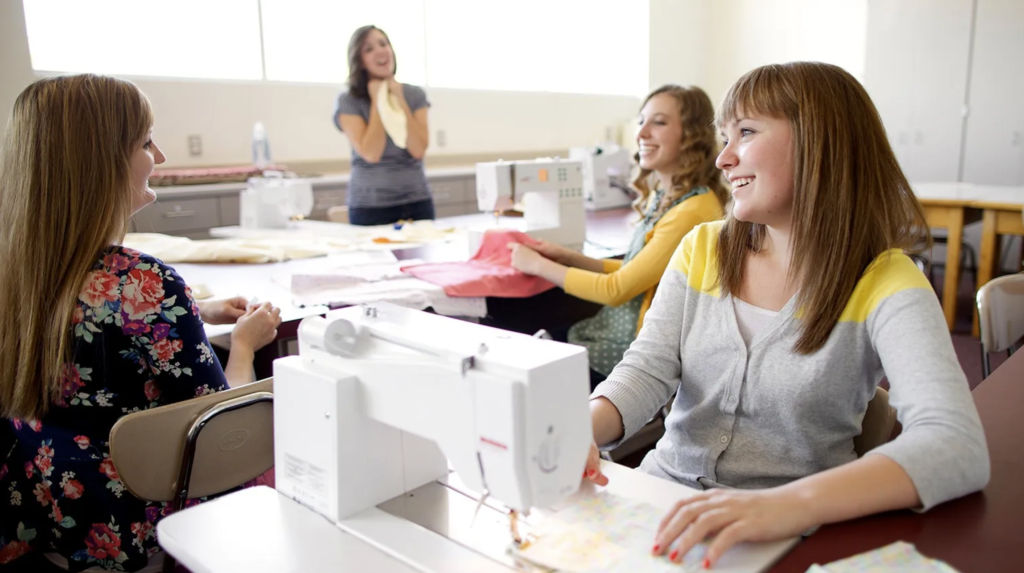
KC: Yes, I went to college on a soccer scholarship and an academic scholarship. So it was both. And I knew that my major needed to coincide with something I could use as a mom. And because I was so driven by my passion for medicine, I tried to do nursing first. But that whole program was right during when soccer practice was, so that wasn’t an option. So I chose a different one that was still applicable and I still ended up loving was sports medicine and athletic training. It was really busy in college trying to do a really intense major, the required internship hours and traveling for the major, but also keeping up with soccer.
AA: Okay, so going back kind of in the chronological timeline, you’re in college, you’re playing soccer, you tear your ACL, that’s the end for you of soccer. And that was not such a sad story. But then you’re still on your academic scholarship, you’re wrapping up college. And what did you think of as being next for you? And then at what point did you meet your husband?
KC: Okay, so my last semester of college was coming up and I wasn’t getting married, which was kind of a panic moment for me. I think most girls our age in that scenario grew up and knew that they were supposed to marry in college. That’s why we went to college is to find a spouse
AA: Oh, yeah, right. I was married before college was over. That’s kind of the goal. You go there to get an education second. You go there primarily to find a husband. That’s what you’re told.
KC: Right, so, I’d gotten an amazing education, but I wasn’t getting married, so, shoot, now what do I do? My bishop tried to convince me that a mission was the right decision, and he just didn’t feel right to me. So, I started applying to a lot of grad schools, knowing that that would keep me in an environment where single men were, and I would have the chance to meet who I was supposed to meet. And in that last semester is when I met my husband and luckily we got serious enough by the end of my last semester that we knew we were going to get married.
I had multiple graduate degree options, and we sat down and decided together that we both knew I was very driven. I was very accomplishment-oriented and we knew that if I went to grad school, it would be very hard for me to stay at home and be a full time stay-at-home mom. We knew my personality, that I would be driven to succeed, that I would want to be good at my career, that it would be time consuming. And we decided together that the best decision would be for me to not take advantage of those graduate school opportunities to work full time and put him through school so he could get a good career and not me.
AA: You’re saying that part of that was you didn’t want to get used to your independence, so that you would resent it after you had kids? Is that part of it?
KC: Yes, absolutely. That’s a great way to word it: that if I didn’t want push my luck the best way to do it would be to avoid temptation altogether and go straight to being at home
AA: Wow. Okay. So this is when I met you, I think. I think…were you still in school or? No, you were done with school. You were working.
KC: I was working full time.
AA: And your ex-husband was still in school. That’s what I remember.
KC: Yes. I was putting him through school.
AA: Right. So what happened next?
KC: We got pregnant right away and, once he graduated, we had the opportunity to move to Ohio for his position. And honestly, at that point, we nailed what our roles were supposed to be. We nailed it. He was phenomenal at working and putting it on the line, staying up late, getting his master’s degree, traveling. He did it all.
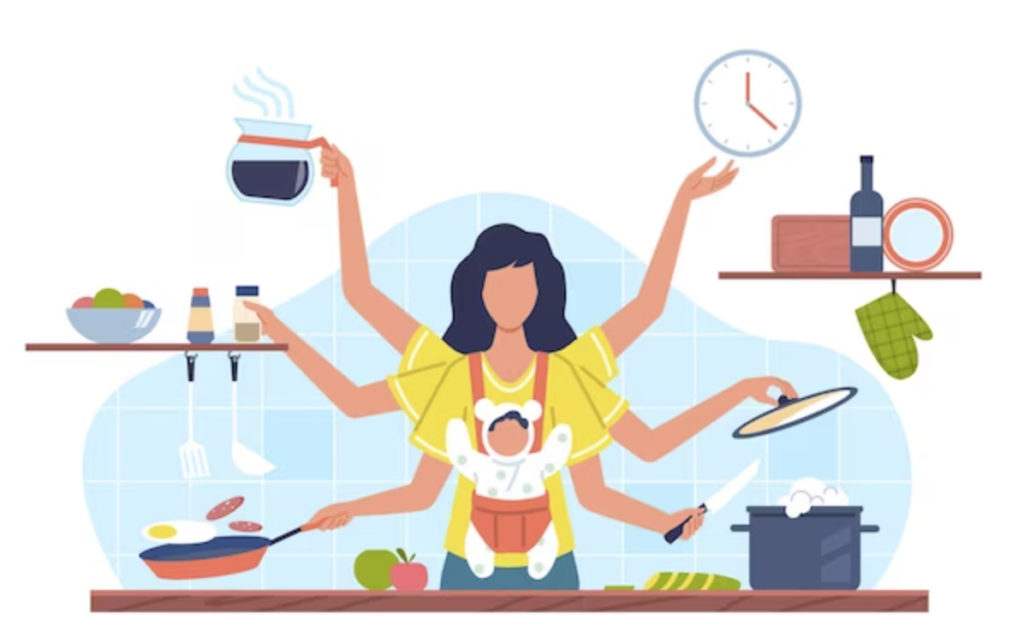
He was gone a lot. So that left me home with four little children. And I realized very early on that we were going to get a lot of attention when we went out in public. And it could either be attention of pity and, Oh my goodness, that lady is in so over her head. What is she even doing? Or it could be good attention of Wow, she’s so put together and look at her well-behaved children and look, her cute girls have bows on every day at school. So I chose the good attention. If you’re going to get attention either way, let’s get the good attention. And so I felt like I really nailed being a good stay-at-home mom and I became very independent because he was gone a lot.
We both just were really awesome at following our leaders and what we were told we were supposed to do. We were good at it.
AA: I remember these years. I mean, I didn’t see you for a little while when you were in Ohio when you were having your babies, but then when you move back to the Bay Area, can confirm: Kristy was the model, the model mom with the perfectly groomed and stylish children. You were the model family. You really were, but not ever pretentious or anything. Cause you’ve always been just down to earth and lovely and real and stuff. But no, you had your stuff together for sure.
So remembering those years. for me too… You and I have talked about this and I want to just put it out there and see we want to say about this. Again, we were both so, so, so happy, like we love our children so much and I was glad I got to be home with my kids in all of these wonderful moments and I didn’t miss all of these great things about their childhood. That was the upside. That was huge and really important. And I won’t negate that. It was.
And it’s more complicated than that because I also felt like I had the sense of who I had been before I had had kids and I’m a nurturer, for sure, by nature. I’m also an intellectually curious person. I’m a learner and I am a participant and it was really hard for me to just be in a house all by myself with a bunch of kids. And one thing that came up for me sometimes is an occasional woman in our Church context who was working outside the home. And I would feel the most uncomfortable mix of emotions when that would happen because I can think of a couple examples of women who like, who had kids and were working and like, wait, wait, wait, this isn’t computing because they’re really good moms also, and they’re like— I can think of a couple, I won’t say their professions— but I would feel this mix of judgment, like you’re not allowed to do that kind of enraged judgment if I’m being honest.
This is not reflecting well on me I realize. I’m just saying what I felt and I hated that feeling too. I’m like, oh my gosh, don’t judge them. And I think it came from jealousy. I was so jealous and it was always really hard for me to see what… well, and my own sister, my own sister was a nurse is a nurse too. And she’s wonderful. I’ve never felt judgment or jealousy toward her at all. But I think that’s because when she talks about the Church, she’s like, oh yeah, that’s really hard that the Church tells women not to work.
But sometimes when women are like, “No, nothing’s wrong here. Everything’s fine. The Church, what? You just do what you want.” I mean, it would just make me feel really frustrated and I didn’t know what to make of those feelings of…it’s almost like, wait, you cheated. Do you know what I mean?
KC: Yeah. I feel like so many girls in our situation had that mix of emotions that I would see somebody who is pulling it all off and breaking the rules, but then also getting heralded as a hero for being able to do it all. And it was going against the rules, but they were also being heralded as a hero. And I do remember feeling like It’s not fair because I followed all the rules. I did everything right all the way through exactly like I was told to do. And I remember thinking, like, wait, what? That was an option? How did she get that message and I didn’t get that message? And she has this awesome career. And she has awesome kids that are just as well-behaved as my kid, right? It didn’t take her being at home all by herself for years on end, right?
AA: Yeah. I think it would be unrealistic and not true for anyone growing up in our environment to claim that there wasn’t that message.
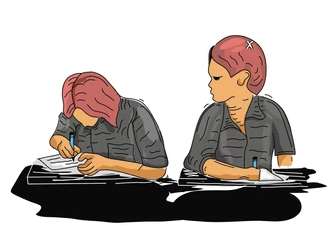
KC: Yeah. That’s what’s hard for me is when women downplay or diminish or say like there wasn’t that message. And that’s probably why it’s so validating to hear that reel of the message. I was like, okay, I was not making it up. And that’s why I get angry too. And like that jealousy judgment feeling, I think is because it was like, Wait a second, that was a sacred sacrifice that my mom made, that her whole generation made, and then that I made, and it’s kind of like a social contract of like we’re all in this together, right? All of us women, we’re going to all sacrifice this, right?
AA: Yes. And it’s almost like taking a test in school, right? Where it’s like, okay, it’s a closed book test and we’re all taking the test and then you take the test and you get back a bad grade or something and somebody else is like, “oh, that test is easy. I just used my phone. I just looked up the answers.” And you’re like, wait, wait, what? You can look? It’s open book? You can look at the answers to get an A? What the heck? Like no, it’s not a hard test, but what you have to do is you have to cheat. You know what I mean? And it’s like, wait, does the teacher know you’re cheating in order to get an A?
And it’s just really hard. It’s really hard. That it does feel like cheating to me and it’s not, I mean, it’s actually what I advocate. I actually advocate for women to have sovereignty and just do what feels right to them. But what’s hard for me, again, is when women are like, “What, there wasn’t anything wrong with the system. And you just simply break the rules of the system in order to get what you want.” But there were rules and we all did make those sacrifices. And it feels yucky to think I made that sacrifice in vain. I didn’t have to.
And then like you said, if they’re heralded, like if the teacher was like, “Oh yeah, I know they’re cheating, but look, they got an A and aren’t they the best?” And you’re like, but wait, I tripped the rules….I mean, it’s not like we got D’s on the test, so maybe that’s a bad analogy, but I don’t know….
Anyway. Okay. So everything was perfect and beautiful and happy. Everything is going great.
KC: Yeah. Yeah. Everything was working. Everything was working.
AA: Okay. And then suddenly things changed. Do you want to talk about that?
KC: Yeah. In my perspective, we went from being a happily married couple with a really great family situation to truly overnight being the opposite of happy. And we went from that state to, less than six months later, I was divorced and moving back to Utah to get help from my family, dragging my kids through all of it.
And I remember when we sat our kids down to tell them we were getting a divorce, I was as shocked as they were, and my first reaction was “but don’t worry, we’re going to get you a dog.” It’s like, my first reaction of like, I know this is crazy, but I’ll buy you a dog and it’ll be okay.
So we moved to Utah where my kids had never grown up and it was a really big culture shock for us to be from Columbus, Ohio, where it was very much Bible Belt and ‘Jesus loves us’ type of religion to the Bay Area, where it was very liberal and educated and outside of the box thinking to back to Utah. I felt like I was coming back to the 1980s with the terminology and the point of views that were happening in Church. And it was a really, really hard landing for us to come back to Utah.
AA: Can we go back just a little bit before you ended up in Utah? I’m not going to press on the details of the divorce, but I do know that your ex-husband was in a position of leadership in the Church. And so the Church leadership structure was involved in that process and you were in conversation with them. What did that feel like talking about it?
KC: Yeah, I am. I do feel like we were in a more public position with what our family was and who we were. And we were very involved with the Church leadership throughout the process. And I love these men. I love these men that helped us. They were kind and thoughtful and they had so many above and beyond moments for our cute family going through this. And I think the hardest thing for me throughout that whole process was that there were no women involved. There was, I mean, a Relief Society president that had no voice and I know these men went home and talked to their wives and got really good advice from their wives who are strong and intelligent and have great perspectives. But, as far as the decisions, no women were involved and those meetings they had. I would find out afterwards what had been decided. I remember waking up early to go on runs with my girlfriends and the conversations were definitely “What did they decide? What are they gonna do?” And my response was either “they decided this” or “I don’t know what they’re gonna do.” But it was very unarming and very upsetting to realize that my future and the future of how they handled it for my family was completely out of my control.
I think after the decision was made, they did ask me if I wanted to speak in Church or if I didn’t, but that’s kind of ancillary to the whole process, right? I look back and think, if only there had been a woman in the room. How could this have been different? If only a woman had a voice in that whole process. If I had had a voice in that whole process. But at the end of the day, I didn’t.
AA: I think that’s so powerful because sometimes it isolates the variables, right? Because if there is a situation where like, oh, the men are…they were just mean and awful to me. Then that’s a variable that introduces where you can say like, “okay, then that’s an individual personal problem, right?” Like those men were, the LDS term, the lingo is like, ‘unrighteous dominion’, right? Oh, well, that’s unrighteous. Those men shouldn’t have acted that way. But because, and I know these men too, and I agree, they are lovely. In fact, I remember that day in Church where we came to your… cause we were in different congregations, but we came to that day in Church where it was all gone down; they had gray faces, gray, there was no color. They were just ash and I could feel that love and like that grief for you.
So that isolates it. These are good men and it highlights, this is a structural problem that there were, and it’s not those particular men’s fault that there were no women in the room when decisions were being made that were affecting you and your kids and your family. It’s not their fault that the structure is such that you weren’t even invited to those conversations or whatever. It’s not individual men. It is a structure. And individual men did create this structure. You know what I mean?
KC: Yeah.
AA: So, individual men now, if there are men in the LDS Church watching, it’s up to you to change the structure because women have absolutely no voice or voice to be able to change the structure. But it’s a structural thing as it stands today, right? Not just men are jerks. These men were not jerks.
KC: They were not jerks. And honestly, they were thrown into a situation that was totally new to them, that they hadn’t dealt with, and they had no training on. They had men that they could call that were higher up area authorities, but those men didn’t have training in this. There was no training involved. They were just good, kind men trying to do the best they could in an all-male power structure.
AA: Okay, so you now were finding yourself in a situation you never thought you would be in, never in a million years. So how prepared did you feel to be able to support your kids and be a single mom in the world?
KC: I would say completely and utterly unprepared to be an independent mom. I think there are a lot of things that in a marriage like ours that we can become complacent in, that the other person just takes care of, and we kind of outsource a lot of the things that don’t fall under our silo of responsibility. And when that silo gets destroyed and all of a sudden you’re in charge of all these other things, you realize how complacent and how uneducated you’ve allowed yourself to become by allowing someone else to make these decisions instead of making your own autonomous decisions about your own education and your own responsibility to learn everything that it takes to become a fully functioning adult.
I knew nothing about taxes, nothing, as one small example that it was just taken care of. I didn’t need to be educated on that. And all of a sudden, I’m on my own, and I don’t even know what the tax forms are. And it’s a very unbelievably humbling experience to realize that as an adult, I was almost 40, as an adult, I was completely uneducated about what it takes to be an adult.
If only there had been a woman in the room. How could this have been different?
AA: True, me too. And I want to, again, like, I’m glad we started the episode emphasizing though, that it wasn’t just us being like negligent. Like we were trained not to know those things. We were set up, that’s the thing. I know this is the point that we’re both making is like…it wasn’t laziness.
Yes, there’s complacency, I guess, you know, and I guess we do have to like, at the end of the day, take responsibility for the choices we made, but we were literally trained to not, that was somebody else’s, like you said, silo. That was somebody else’s role. A man’s role is ABC, this is the man’s role. This is the woman’s role. And actually, the woman’s role is one item long. Right? So like, be a mom, but excel in all of these ways, right? But the man was supposed to do all the other stuff.
And there was even that thing in the reel of all of the Church leaders, where it’s like, “then do you want a woman who’s more educated than you are?” And it was kind of like, yeah…don’t get too much education as a women. Be small! You’re not only not given the opportunities to learn those things, but it’s like, why? Yeah, why would you waste your time learning that and that’s his job? So I just think you’re being a little hard on yourself because like surely we were told not to, we were told “Yeah, never need to know that stuff.”
KC: Well what’s funny is I have we have a really good friend who was an accountant and she knew all these things and I actually remember thinking Wow, I’m really glad I don’t have to know that.
AA: [laughter] Oh that’s so funny.
KC: Goodness, she has all this information and I don’t have to know any of that.
AA: That’s boring.
KC: It’s boring but like you’re supposed to know that as an adult! This is one of those disclaimers at the beginning of the conversation. This is not everybody’s experience. There are women that know taxes, right?
But for me personally, when I got divorced, I was 100 percent unprepared to function as a fully functioning adult on my own. And I think the system really hurt me. I knew I needed to buy a house and I had really great credit, but because I didn’t have my own independent credit. And because I didn’t have at least two years work experience, the lenders thought that I was a risky investment and I could not buy my own house.
And even when I was trying to establish my own independence, I still had to go back and ask a male because the females were all in my same situation in my family, right? They were not working. They didn’t have work experience. They didn’t have the independent credit. I had to go back and ask family members, male family members, for help to buy a house, to buy a car, to even…I got in a car accident in the snow the first winter that we were here. My car just slid into another car. And it was the first time that I had ever filed a claim with my insurance. We’d been on the same insurance for like 20 years, right? They paid the claim and immediately kicked me off my insurance because I was no longer a stable customer, I was a risky customer and so they just kicked me out.

So all of a sudden I didn’t have car insurance that I had had for 20 plus years. And it was 100 percent because of the choices and decisions I made and we made as a family. It’s a cruel irony that even as I was trying to establish my own independence, I was still dependent on the men in my life for charity and love and for them to step in and help me.
AA: So Mary Wollstonecraft wrote that these structures and these systems keep women in the role of a perpetual child. And I know we’ve talked about that. Can you think of some other examples where you’re like, Oh, I’m being treated by the system the same way as children are. You keep saying, like, “I was not prepared to function as an adult.”
KC: Yeah. Well, honestly, the biggest striking example of that is the divorce process. That, legally, I’m a dependent, My husband, legally, he owes me alimony as a wife, as a dependent. And in the same breath, he owes my children child support as dependents. And it was a hundred percent his goodwill and his willingness to give me some of the money that I owed. And I think this is a phrase that we use all of the time in our culture of ‘This is our money. This is our job. We’re making our sacrifices for our family’. But legally, nothing is ours. It is all his. It is all his paycheck. And he has the ability to decide what he wants to do with his paycheck. And I think if there’s one word that I want people to remember is that it’s not ‘our’ anything when it comes to divorce.
He still has those 20 years of work experience that he did, he earned—he did, he worked his tail off to get that 20 years of experience—but at the end of the day, he still has 20 years of experience and he will continue to make that much that comes with the benefit of 20 years of experience. And I am literally starting my pay and my advancement in my career. I’m just out of college. I’m 20 years behind him because that’s what I am. I’m just out of college.
AA: Let’s get back to that in a second. Cause I know we’ll talk about what you did and how you’ve been able to advance. But first I want to go back really quickly to the terms of the divorce, and like you said, like there’s no our anything legally, it just really does belong to the person who’s earned the money. And maybe, if it’s okay, right here, I’ll read an email that I got from an anonymous person who listens to the podcast and see what your response is, if that’s okay.
So she said, quote, “since our divorce, my behavior and finances continue to be monitored by my ex. I cannot say anything negative about him to anyone, even if it is the truth of our story. Every retelling of our story, or of our current situation has to be framed as true, his “generosity” or his amazing career that provides opportunities for us. I get that it’s a game. I’m fully conscious and aware of how I behave towards him and around him in order to keep the peace and not be punished for any bad behavior. I get that even when I’m trying to be honest about my challenges, I can’t be fully transparent with anyone. I’m constantly thinking about what will get back to him and how this could possibly be used against me. I’m still a puppet in his world, playing by his rules. If I don’t, I will get destroyed financially. He has complete financial control over what I do and don’t get. If I play the game his way, we get along great. If at any point I stand up for myself or go against what he wants, I get taken back to court and more money and support is taken away.”
KC: That is so hard to hear. And I feel like there are a lot of women that are stuck in that position. It goes back to the patriarchal system that he does have the power and he does have the control. And even if she wanted to fight that system, he has the money to fight it and she doesn’t.
AA: Oh, right. Like she’d have to hire a lawyer, which she can’t afford.
KC: Yeah. I mean, I’m interpolating, obviously some outside situation.
AA: Yeah, and the time too, like where is she going to have the time to fight that too if she’s raising kids and trying to work? Anyway, go on.
KC: Yeah, I think unfortunately, that’s a really common story. I have quite a few divorced friends now and women I feel like once you get divorced, this is sisterhood that goes along with it. And I know of specific women I can think about that are in this situation, that they do have to behave as he wants them to behave or they get punished. So even after the divorce, you’re not actually free or independent in any way. You’re still dependent.
AA: That’s so hard. Well, and it reminds me of another email too from a woman who said…I’m trying to remember. So she’s divorced and they have a child who is a super talented athlete. And was just offered an opportunity to play tennis at a super elite university and she would do anything to send her child to this university and give him this opportunity to play tennis there. But she’s in the same position that this other woman in the email was where she didn’t invest in a career. She has no money of her own. She has to play the game to just please her husband so that he will give them money, but her husband doesn’t support the child’s sports career. So she’s like, my child is going to forego this amazing opportunity because he will not pay for it. He won’t pay for the son to go play tennis at this elite university.
And she’s dying because she would do anything and she just doesn’t have the money for it. And he does have money. That’s the thing. He has a ton of money and totally could. He’s like, “Nope, I won’t.” That’s the thing. So, I don’t know, what can she do?
KC: Nothing.
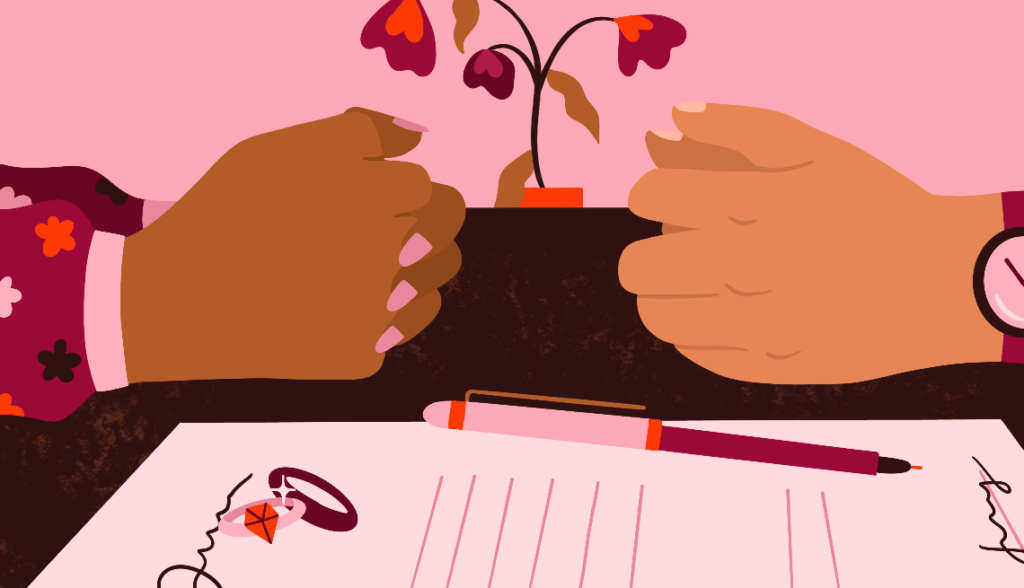
I mean, maybe there’s something else that I’m missing in this equation, but at the end of the day, if he doesn’t want to pay, that’s his decision, his money. She could love her child to the moon and back and wish that there was something she could do, but under those circumstances where she doesn’t have a job, she doesn’t have the ability to pay for something right now.
AA: That’s really heartbreaking. It’s so hard. Cause what I’m thinking back to is now what you talked about, like those very first…and I guess this is where like for people who are watching or listening to this: if you know somebody who’s like just starting out in life and making these decisions…I’m just picturing you and your ex-husband like talking together and being like, “Well, what should we do? Should I go to grad school? Should I pursue a career?” And it’s not like you or I even considered pursuing a career because of again the teaching we got when we were little. You don’t realize that that’s the path you’re choosing. You don’t realize that like, yeah, I want to be a wonderful mom and I want to be there for my kids. You don’t realize the risk that you’re placing yourself in that you could then have your kids who, like you said, you love more than anything and now I can’t provide for them because I don’t have any of my own money. I just was not thinking of that when I was in my early twenties and making those choices. You don’t know that that’s what you’re signing away.
KC: Yeah. Well, and in a lesson I remember hearing specifically like, “well, you should try to get a degree because you never know. Maybe he might pass away…”
AA: Yeah. If your husband dies.
KC: Yeah. You may get put in a weird position where you might need to provide for your kid, but it was so ethereal and abstract that it wasn’t ever gonna happen? Not to me. It wouldn’t happen to me. Surely if I keep all my governance and we read scriptures every night and all of those things like, well, I’m doing everything I should, so this isn’t gonna apply to me.
I actually remember when we got married that we were promised that if we kept our commitments that we would be protected. And I’m sure we were from a lot of things, but I was not protected from this.
AA: So. Once you found yourself in this position, going back to your story now, where you’re raising your kids, I think you mentioned to me once, even though you said you had good credit—meaning that you didn’t have bad credit—but because you were on a credit card with your ex-husband the whole time, you weren’t establishing your own credit. So you said to me once that you have the same credit level as your 20 year old son, right?
KC: Yeah.
AA: Like you’re just starting out in life again; you’re like a kid.
KC: So when I bought my second home, I was given the option of having an increased interest rate with a much higher down payment if I wanted to do it on my own, or I can continue to have a cosigner. And I just remember thinking, you’ve got to be kidding me. I’ve paid an on time house payment for three years, but because I had to have a cosigner and still not building my own credit. So it still wasn’t going straight to me. I was still a risky investment for them. So I took the higher interest rate. I took a higher payment so that I could finally start putting my own credit in my own name so at some point in the distant future, I would get treated fairly by the system.
But there are a lot of women out there that can’t do that. How many women could do a higher interest rate and pay a higher monthly mortgage just to establish independence? There are a lot of women that can’t do that. And I do feel like there are women that are luckier than me in this process. And I feel like there are women that are more unlucky than me in this process. I see blessings of the situation that I’m in, and I also see how it’s impossible for someone else who hasn’t been given those opportunities to succeed.
AA: So tell us what you have done to be able to start building… I guess you just told us: that’s awesome that you just were able to like get your feet under you and start building credit by buying your house with those different terms. But then you had graduated from college when you were really young, but not worked and then you were finding yourself in the position of starting out like a 22-year-old again but with kids.
KC: Ironically, I reached out to the same physical therapy office that I worked at when I had graduated. They were still working. It was so cute to reach out to them. And they actually offered me the exact same athletic training position that I had done after I graduated.
AA: No way.
KC: And it was the exact same pay.
AA: Oh. As in the same pay from 2002? Not adjusted for…
KC: No! And the hard thing about choosing athletic training as a career is that it’s all after school, weekends, games, right? And then I wanted to be a mom, and obviously I didn’t think about that way back when. But now as a single mom trying to do athletic training… there’s no way, right?
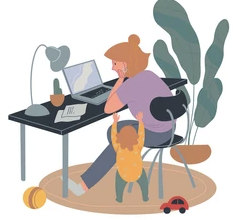
So, I went through a few different options of trying to work in offices and it just wasn’t fitting. And so I finally had this moment where I had mourned the loss of my master’s degree all those years ago. And I finally felt like, okay, if I don’t do it now, I’m never going to do it. So I enrolled in a master’s degree program full time and I was a full time single mom, and it was really hard. There were a lot of nights where my kids were struggling with, “Mom, are you ever gonna just watch a show with us?” And, “Mom, is this ever gonna end?” And me thinking, I just gotta go. I just keep working, keep pushing.
And in this master’s degree program, I had the opportunity to do an internship in the cath lab, the cardiac cath lab.
AA: Tell people what a cath is, for a non-medical people.
KC: It’s really where heart procedures…everything up until open heart surgery we take care of in the cath lab. So, if somebody comes in with a heart attack, they get pushed straight to the cath lab. If somebody has a weird arrhythmia in their heart, or needs a pacemaker, they go to the cath lab.
AA: Is it because it’s a catheter? Like you put the catheter into the…
KC: Yes. You can do so many things to help the heart through a catheter, and really all it is, is a long straw that you can put things through to help you work through. It’s not a urinary catheter that we all have, right?
But I had an internship in the cath lab and they liked me and offered me a job, and I love it. I work full time and I have so much to catch up on. I think the people that I work with have been there a really long time and I’m just starting, so I have extra work to do to keep up and to learn what I need to do to be proficient.
AA: How’s it feel though?
KC: Awesome. I totally cried the first time I got my own paycheck in my own name. And the independence and the freedom and the confidence that comes with my own paycheck is so liberating. And I know that there are a lot of ways that I’m still dependent on others for generosity and support, but it’s a huge milestone for me to be able to actually put money in my own retirement account.
AA: That’s incredible. I’m so happy for you, so proud of you. And one thing that came up for me as I heard you describe that is like this in immense gratitude for all of the women who fought for your right to do that, who fought for women’s rights to have credit in their own name, that you could go to school where you wanted to, that you could get a job that you wanted and that you got to keep your own money and have your own account, like all of these things are rights that women fought for just within the very last little minute of history, right? And in some places women still don’t have those rights. So I’m so grateful, like so grateful for everybody who fought for the fact that you even can, you know what I mean? So that you’re not literally just destitute and with absolutely no way to get ahead which is what it was in the past.
KC: It was. And I think it’s easy to become short sighted on the things that are hard and the things that are stacked against you, but remembering the women that have gone before and fought in hard situations is really empowering, and the gratitude that comes with that. That does push me to keep trying to do that for the generations in front of me.
AA: So how are you teaching your kids now? Because you have kids who are launching. And we were given a model that we have a lot of dissatisfaction with and didn’t work out. So how are you teaching your kids differently? You have boys and girls.
KC: I think one thing to remember for me is that my mom always quietly pushed for an education. She quietly pushed me in a direction of independence. And I’m so grateful that that was a small voice in the back of my head. And I feel like I’ve just taken those same lessons that she taught me quietly and am making it as loud as I possibly can. There are discussions in our house, especially with my girls of “What are you going to do? What are you passionate about? What do you want your career to be just for you, for your happiness? What is it?” And that’s a very different message than what we got growing up.
I totally cried the first time I got my own paycheck in my own name.
And I encourage them to, no matter what…I would be so thrilled if they got married, if they had kids, but if they do, to maintain some independence. Always have a credit card just in your name. Always have a paycheck coming in, in some way, shape, or form, just in your name. And keep your own heart and passions alive. Don’t give them up. So in raising my kids in a different perspective, I think a major lesson that they’re learning, not only through society, that’s kind of changing, but a step back from a patriarchal structure is that they do see that there are other options and other opinions, and that my cute boys don’t envision women as less than or less deserving than an opportunity than them. They are growing up in a world where women, and I think everyone, will continue to fight for more independence, but it’s going to take our cute kids moving the ball forward after what we’ve tried to do. They’re going to continue to work towards equality and that’s really inspiring and really exciting.
And I’ve been thinking a lot about a memory of going into my junior year and I tore my ACL, like a lot of girls do. I tore it stepping in a sprinkler hole. It was so not glorious. It was so awkward and it was so embarrassing to have to tell everybody that I stepped in a sprinkler hole and that’s how my career ended. But, in the moment, it was right before fall semester, I did it during double days, and I’m remember the way that our campus was laid out was that there was a lower campus and an upper campus. And the lower campus was where a lot of the athletic facilities were. And then there was a massive flight of stairs to upper campus where most of the classes were. And I remember going up to that flight of stairs that I’d climbed, I don’t even know how many times. But the first time I went up to it with my torn ACL and crutches and I looked at it and thought there is no way I’m getting to the top of that staircase, let alone doing it more than once, right? It’s still completely overwhelming and completely unrealistic to expect myself to make that journey.
And I started with that first step, and I remember very vividly people coming up behind me. You know that traffic jam that starts to happen when there’s like one weird hold up? And I was that weird hold up. I remember people being backed up behind me and trying to push by me without bumping me and being respectful to me, but I was definitely the holdup and remember thinking these people don’t even realize how lucky they are to just be climbing the staircase and not even be paying attention to what I’m dealing with. And I remember getting to the top of those stairs and realizing there wasn’t a bench to sit on…and how is it that in this whole campus not one person thought of putting a bench at the top of these stairs to rest? Surely this is not easy for everybody to get to the top of the staircase. Surely somebody else has to be exhausted by this journey, but there was no bench. So apparently nobody had thought of it.
And I think of this story a lot when I think of women in the Church and women in a patriarchal society getting divorced, because when you start at the bottom of the stairs of divorce, it looks unbelievably overwhelming. There’s no way that a woman in the patriarchal society can come out on top in divorce. There’s no way I’m going to get to the top of this. I remember days that are likened to those first few steps of just waking up and having this crushing weight on my chest and knowing that I had a whole day to go through and this weight was not going to go away. It was not going to be relieved at any point in the day, but the victory of actually getting out of bed in the morning and the victory of getting my kids out the door was huge. Those first few steps felt so overwhelming, exactly like it did in college with crutches on a long staircase. And I don’t know exactly when this staircase of divorce ends, when that victory happens. I’ve been divorced six years now and it feels like maybe I’m getting momentum, but I definitely don’t feel like I’ve reached the top. And I definitely don’t feel like there are things that are settled. It’s just a new challenge that keeps coming up.
So, yeah, maybe off topic a little bit, but I hope if there are any divorced women coming from our background that are listening to this, that they feel seen and heard and understood. That they’re not alone, that their trials and their predicaments are not just specific to them, but they are applicable to a lot of women who are trying to fight through the system of patriarchy. And that they’re loved.
AA: Yeah. Again, I’m just so, so impressed with you. So proud of you and I love you. Thank you for being here today. I so appreciate you being willing to talk about it and share your story, because I know from emails that I get and DMs that I get, that a lot of women are in this position, women that are our age, that are older, that have gone through this, and then like we talked about earlier, women that are just starting out and making these critical decisions. So I know this is going to help so many women and I’m so, so grateful for you being willing to share your story. Thank you so much for being here, Kristy. I love you.
KC: I love you too. Thank you.
Keep your own heart and passions alive.
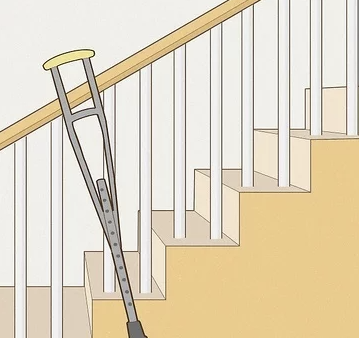
Don’t give them up.
Listen to the Episode
&
Share your Comments with us below!

